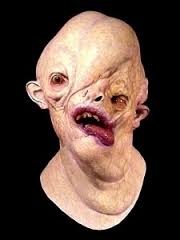diseased
英 [dɪˈziːzd]
美 [dɪˈziːzd]
- adj. 不健全的;患病的;病态的
- v. 使生病;传染(disease的过去分词)
使用频率:

记忆方法
将“diseased”分解为“dis-eased”,想象有“dis”(否定前缀)和“eased”(放松或减轻)结合,但前缀“dis”在这里表示否定,所以整个词意味着“不放松的”,即“有病的”或“患病的”。
以上内容由AI生成, 仅供参考和借鉴
英语词源
- diseased (adj.)
- late 15c., past participle adjective from Middle English verb disesen "to make uneasy; inflict pain" (mid-14c.), later "to have an illness or infection" (late 14c.); "to infect with a disease" (late 15c.), from disease (n.).
权威例句
- 1. The arteries are diseased and a transplant is the only hope.
- 动脉已经发生病变,移植是唯一的希望。
- 2. Clear away dead or diseased plants.
- 清除掉枯死和染上病虫害的植物。
- 3. His diseased bladder left him incontinent.
- 病变的膀胱使他小便失禁。
- 4. the diseased social system
- 病态的社会制度
- 5. The diseased tissue can be easily invaded by these microorganisms.
- 有病的组织容易被微生物侵袭.